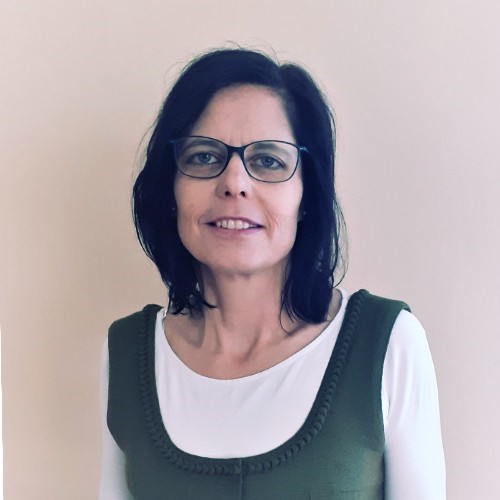The involvement of practitioners, scientists, the local population, students and politicians offers opportunities to implement the ideas and contribute to the formation of new partnerships. These collaborations are particularly effective at joint events and enrich the transfer of knowledge about development potential in rural areas. International cooperation is characterized above all by the successful implementation of common goals.
The main aim of Neprovalter is to improve the living conditions of the population living in the Alpine region. Due to its special conditions, the Alpine area represents an important "repository" of traditions, customs and spaces: a true treasure owned by the community of all European peoples. Agricultural businesses in mountain regions must be recognized for their role in guaranteeing the continued existence and preservation of these assets.
The Neprovalter project envisages the creation of a transnational cooperation network operational between territories, institutions and services; The aim here is to create a development model that is reasonable for agriculture and is capable of both promising prosperity for the current generation and preserving resources for future generations.
PROJECT GOALS:
- Promotion and support of disadvantaged areas in the Alpine regions by promoting local traditional and typical agricultural products that do not come from industrial production;
- Improving the traceability of the production of traditional products to improve quality;
- Adaptation of the offer to the requirements of consumers;
- Raising consumer awareness of the special properties of the products;
- Maintaining and spreading cultural and historical awareness of traditional production methods;
- Increasing farmers' income
Work packages:
- WP 1: Promoting organic meat production for the sustainable development of mountain areas.
- WP 2: Promoting organic milk production to meet consumers' increasing demand for healthy foods.
- WP 3: Increasing the value of local agricultural production by establishing general criteria for quality, authenticity and originality to ensure the quality, safety and traceability of the products, information events to spread knowledge about the tradition and culture within the region to push beyond spatial boundaries.
- WP 4: Establishment of a transnational network of “teaching farms” for students and other interested groups to improve their understanding and confidence in agricultural production.
- WP 5: Formation of a transnational network of “social farms” where disadvantaged people (old people, mentally handicapped people) are actively integrated into agricultural activities. Collaboration within the project partnership includes the transfer of knowledge as well as the preparation and dissemination of the results through a variety of information systems.
PUBLICATIONS/PUBLICATIONS:
- Report on the 6th Transnational Workshop of June 30, 2005; "Sustainable Agriculture in the Alpine Area - Transnational Networks"; ISBN 3-901980-95-4; ISSN 1818-7722 (Available at HBLFA Raumberg-Gumpenstein)
- Final Report (Available at HBLFA Raumberg-Gumpenstein)
- Potato brochure:
Under the motto "The great tuber - school with a difference: sowing, caring for, harvesting, processing and learning!" was the potato project at the Irdning elementary school, which was implemented with the 3b class in the 2004/2005 school year. The aim of the project was to give the students insights into agriculture and agricultural research, to promote lively, real-life learning "on site", to grow healthy local food themselves and to experience its value.
Under expert guidance, the primary school class planted their own potato field on an area of the HBLFA Raumberg-Gumpenstein and carried out a large part of the care and harvesting measures throughout the entire growing season. Dr. Anton Hausleitner, Head of Research and Innovation, as well as DI Waltraud Hein and Ewald Schmalengruber from the Institute of Organic Agriculture and Livestock Biodiversity supervised the class project throughout the entire period. The crowning conclusion was the big potato dinner, where the school children, the teacher and the employees of the HBLFA Raumberg-Gumpenstein were able to taste the harvest of their work themselves.
The result of the project was summarized in a 'potato brochure' and is a very important contribution to promoting further activities on educational farms in order to awaken interest and value in agriculture and its products in children. The initiative shows that the children are enthusiastic about what they do and the harvest was also a great success.
PILOT PROJECTS (cooperation research and education):
Looked into the Ennstal
As part of the agricultural marketing project study subject, the students dealt with the topics of customs, history and traditional specialties in the Ennstal. Divided into three different groups, they worked on the following key areas:
- dealing with organic production including marketing,
- examining customs,
- the creation of a donut brochure with regional specialties,
- a student exchange with the partner school (technical school for agriculture and home economics) in Salern/South Tyrol and
- the design of the final event, which took place on May 6, 2005 at the HBLFA Raumberg-Gumpenstein.
For the “Look into the Ennstal” project, local catering establishments, agricultural businesses and public institutions (including hospitals and retirement homes) were surveyed about regional specialties, use of organic products, holidays on the farm and direct marketing. Research into customs in the Ennstal and Ausseerland area as well as holding a customs conference and creating a customs calendar complemented the work program.
The results of the “Look into the Ennstal” project are intended to be of benefit to farmers, as producers and marketers, as well as to consumers, restaurants and accommodation providers and, last but not least, to the regional population be of use.
ORGANIC
The aim of BIOLogisch was to bring organic farming closer to interested groups (kindergarten children, school students, parents, the private public, practitioners, political representatives, regional and state clubs and associations) and to increase knowledge about organic farming in terms of content, media and to be conveyed in a playful manner according to the respective target group.
The main tasks were divided into four working groups:
- Designing an introductory course in organic farming for practitioners, students and other interested parties
- Documentary film about organic farms
- Use of effective microorganisms in organic farming
- Design of adventure days at the HBLFA Raumberg-Gumpenstein organic farm “Moarhof” for kindergarten and elementary school children in the Ennstal region with an adventure trail and tasting of organic products
- Public relations (design of folders for farms, media articles, events)
The results of the project were presented by the students and teachers at several events.
MISSION STATEMENT – Living SpaceQuality
The “BIOLogic” project of the HBLFA Raumberg-Gumpenstein was selected for the Ministry of Life initiative “Schools implement the BMLFUW model” because it can be seen as a milestone in cooperation between research and teaching and has international significance as part of the INTERREG IIIB Alpine region of the NEPROVALTER project, in which the HBLFA Raumberg-Gumpenstein was involved as a project partner from 2003-2006.
BIOLogical = “Living Space Quality” is the motto of the HBLFA Raumberg-Gumpenstein for the implementation of the mission statement.
The HBLFA Raumberg-Gumpenstein researches healthy foods, intact nature and the preservation of the cultural landscape and passes on the resulting knowledge directly to teaching and to important multipliers. This effectively closes the loop between the development and implementation of research results.
Federal Minister Josef Pröll was enthusiastic about the creative implementation of the projects and also got a personal impression of the HBLFA Raumberg-Gumpenstein's lively information stand at the so-called market square. The students even set up the barefoot hiking trail for the sensory experience in the Federal Office building and the video about organic farming was also presented to the audience. The students of the HBLFA Raumberg-Gumpenstein received multiple applause from the entire audience, especially for their unique presentation of the BIOLogic project in the form of a sketch in the “Raumberger Biohütte”.







